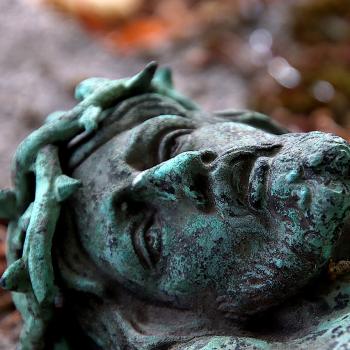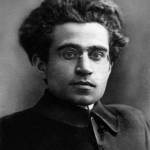Tom, your new book is called Broken Signposts: How Christianity Makes Sense of the World, largely based on the Gospel of John. What are these signposts and how do they help us make sense of the world?
In my book Simply Christian I listed four features of human life and aspiration which I called ‘echoes of a voice’: justice, spirituality, relationships, beauty. I made the point that we all know these matter and we all know we mess them up — and that this is a puzzle about being human in general. I then proposed that when we tell the story of God, the world, Israel, Jesus and the Spirit in the way the Bible tells it we understand why those four are what they are and we see how the gospel enables us to address them in new ways.
In this new book Broken Signposts I add three more: Freedom, Truth and Power. I then run a similar argument about each one — that they are all puzzling in identifiable ways and that the Christian message explains why they’re important and what can be done to address them afresh. But this time, instead of a general treatment of Christianity as a whole, I take simply the Gospel of John, which has a great deal to say (often unnoticed) about justice, freedom, truth and the rest.
So in a sense this book is about the ‘signals’ or ‘signposts’ in our world which do indeed point to a reality beyond our material world — the God of the Bible — even though they are ‘broken’, i.e. we can’t live them out the way we feel we should. But in another sense this book is about John’s Gospel, offering a fresh reading which will be a surprise to many long-term Bible readers but which meshes with the seven great themes as I’ve laid them out, and points towards the vocational resolution in which followers of Jesus are called to be, with new possibilities, people of justice, spirituality and so on. I added brief ‘interludes’ about ‘how to read John’ in between the chapters so I hope it will stimulate people to read it for themselves in a more many-sided way.
This whole book started off as a thought-experiment and the more I went on with it the more excited I became. I hope readers will feel that!
I always figured you for mostly a Paul-man and suspected that your favourite Gospel was perhaps the Gospel of Luke, so I was a bit gobsmacked when I heard you say in an interview just outside the ruins of Corinth that your favourite book of the NT is in fact the Gospel of John. Why is that so?
I have always loved John partly because it is so mysterious, so many-sided. It is so unlike the other three Gospels that it’s always a tease — just when we think we’ve got Jesus figured out, John comes along and says ‘Not so fast . . .’. Some of its pen-portraits are far more vivid than in the other gospels — Nicodemus, for instance, or (his mirror-image) the woman of Samaria. The ‘political’ edge comes through strongly in chs 18 and 19 in particular, though people often fail to see this (Jesus arguing with Pilate, the Kingdom of God against the kingdom of Caesar, about kingdom, truth and power). The resurrection scenes (chs 20 and 21 are amazing, fathomless, poignant human drama (Jesus and Mary, and Thomas, and Peter) woven into the explosive story of the launch of the new creation . . .
How does John 18 give us a sign about the kingdom of God?
John 18 — as I said, a public debate with Jesus facing Pilate — embodies the thing it’s discussing — the difference between the two kingdoms. Pilate/Caesar have a kingdom which makes its own ‘truth’, which does its own ‘justice’, which wields its own ‘power’. But the kingdom of God as embodied and articulated by Jesus is bringing the ‘truth’ of God’s new world, the ‘justice’ of God’s putting-right intentions, and the ‘power’ of creation and new creation, to bear within Caesar’s world and then out the other side, in resurrection. That’s how the kingdom works: bringing the reality of new creation into the middle of the present world, where it will suffer and appear to ‘lose’ but in fact come through with new life.
John has long been regarded as the “spiritual gospel,” however, what does that mean, and in what sense does John help us become spiritual?
I suspect this was a bit of Platonism on the part of the early Fathers who were tempted to see Matthew, Mark and Luke as simply ‘natural’ or ‘earthly’ and John, by contrast, as ‘spiritual’. Certainly there is explicit teaching about the Spirit here but I don’t think that was their point. And John does give us, more explicitly than the others, an opening which frames the whole thing with the clear statement that Jesus is to be identified with/as the one ‘through whom all things were made’, the Father’s ‘right-hand man’ so to speak. But actually (as Richard Hays’s recent book shows so well) the other three also portray Jesus as the embodiment of Israel’s God, so it’s not the case that John has the ‘theological’ side as opposed to a ‘merely human’ one. Anyway, John’s gospel lends itself remarkably well to the tradition of ‘spiritual’ reading where we are encouraged to envisage ourselves as a character, or at least a bystander, within the story, and then prayerfully to wait and see what happens next, what Jesus is going to say to us. I explore this a bit in the book, and I suspect this is something many readers will value particularly.
Do you have a favourite passage from John’s Gospel, one that you return to do, now and then?
I am constantly in awe of chapter 11, the great story of the raising of Lazarus. It isn’t just an extraordinary scene for Jesus’ powerful work in restoring his friend to life; when we learn to read it following John’s subtle hints, we discover a great deal about Jesus himself and his own sense of vocation as he goes to the cross.
What do you think is the signpost we need right now in a politically fragmented and divided world?
We need them all!– since all seven are being trampled on and cast aside by various world leaders. But I might combine ‘love’ and ‘justice’ and turn them into an eighth: Mercy. We need, and should be praying, for God to have mercy on his creation, on his wounded world, on the millions who are suffering now through the folly and carelessness of others; for God’s just and wise mercy to sort out some of the urgent problems both at a geopolitical and medical level. And we need to pray for a new generation of leaders to commit to justice and truth both in their quest for power and in their exercise of it once they get it.
Ultimately, the only way you can get any of the ‘signposts’ functioning properly is when human beings give their allegiance and worship to the God to whom those signposts properly point — the God revealed in Jesus. Our world has tried for too long to get the fruit of the tree while pretending it can do without the root. This book not only attempts to ‘explain’ why the world is the way it is but to get things back on track.
Here’s a short video from Tom about the book:















